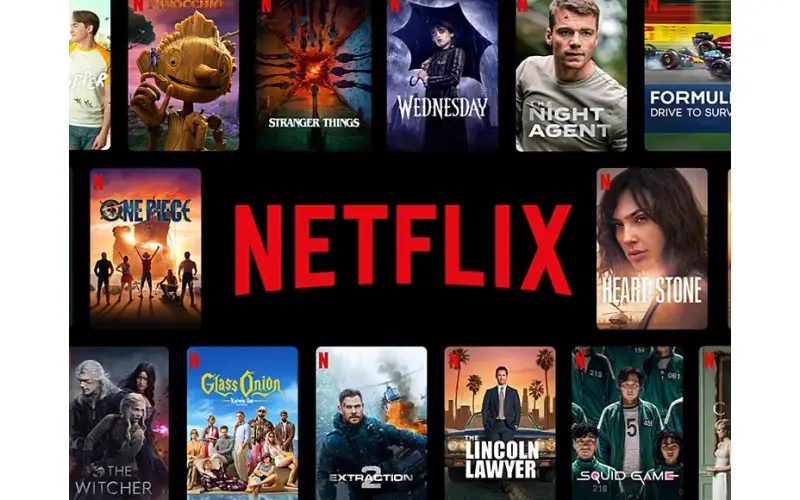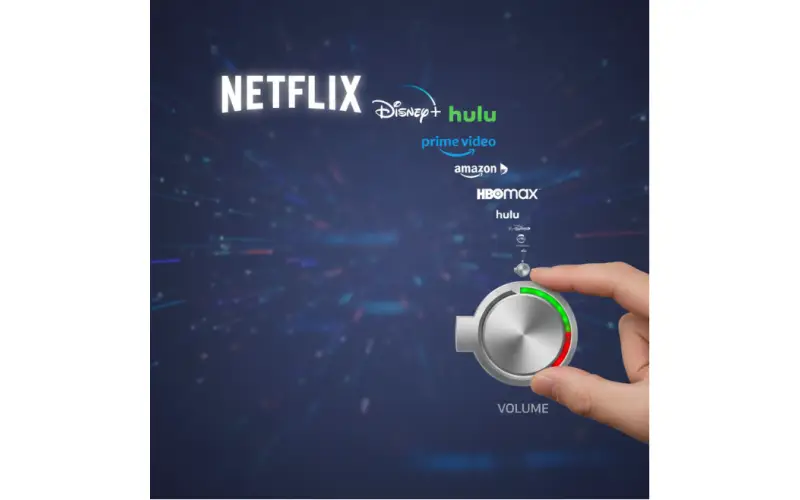By: Dipin Sehdev
The wave of media consolidation shows no signs of slowing down — and now, Netflix might be eyeing one of its biggest targets yet. According to new industry chatter, the world’s largest streaming service is reportedly exploring a potential bid for Warner Bros. Discovery (WBD), the home of HBO, Warner Bros. Pictures, DC Studios, CNN, and Discovery Channel.
If true, it would mark one of the boldest moves yet in a year already dominated by mergers, acquisitions, and streaming platform shake-ups. But before you imagine the HBO logo fading into Netflix’s signature red “N,” it’s worth noting: this is still a rumor, and even if Netflix makes a serious offer, it would face enormous regulatory and antitrust scrutiny from the Federal Trade Commission (FTC).
Still, the idea of Netflix absorbing Warner Bros. Discovery underscores a much larger trend — a race toward fewer, bigger entertainment giants.
The Setup: Paramount Makes a Move, and Everyone Starts Looking at Warner
The latest round of speculation started when Paramount Global, fresh off its merger with Skydance Media, reportedly began preparing a majority cash bid to acquire Warner Bros. Discovery. That’s the same Warner Bros. Discovery that, not too long ago, merged WarnerMedia (formerly owned by AT&T) with Discovery in a $43 billion deal — a combination that’s still finding its footing.
According to multiple reports, the Paramount–Skydance bid could value WBD shares between $22 and $24 apiece, giving the combined studio an expanded library of blockbuster franchises like Batman, Harry Potter, Game of Thrones, and Friends.
But in Hollywood, when one player starts circling a major studio, others inevitably start running the numbers.
That’s where Netflix comes in.
Netflix and Warner Bros. Discovery: A Strange, Possibly Perfect Pairing
At first glance, the idea of Netflix — a pure streaming company — buying Warner Bros. Discovery, a traditional media behemoth, sounds odd. One is built on algorithms, data, and a relentless focus on subscription growth; the other, on decades of Hollywood legacy, theatrical releases, and complex content licensing.
But when you dig deeper, it’s easy to see why Netflix might be interested.
Warner Bros. Discovery has what Netflix doesn’t: a vast physical production infrastructure, some of Hollywood’s most iconic intellectual property, and a global theatrical distribution network. It’s home to DC superheroes, HBO originals, and cinematic universes that still command loyalty.
Netflix, meanwhile, has what Warner lacks: the best streaming technology in the business.
No other platform has Netflix’s consistency in streaming quality, its adaptive bitrate algorithms, or its ability to scale globally with minimal downtime. While other services struggle with buffering and inconsistent playback (especially during major premieres), Netflix runs like a well-oiled machine.
If Netflix were to bring that tech stack to WBD’s content catalog — imagine Succession or The Last of Us streaming through Netflix’s ultra-optimized player — the result could be a streaming powerhouse that rivals anything on Earth.
The Catch: Debt, Antitrust, and the Long Road Ahead
Of course, this is far from a done deal. Even if Netflix did want to buy Warner Bros. Discovery, it wouldn’t be simple.
For one, WBD carries substantial debt — over $40 billion as of mid-2025 — a legacy of its 2022 merger. That’s a heavy lift, even for Netflix, whose market cap currently hovers around $250 billion.
Then there’s the regulatory minefield. Any potential merger between two major entertainment giants would draw immediate scrutiny from the FTC and the Department of Justice, both of which have become more aggressive about antitrust enforcement under the current administration.
Even if Netflix made an offer tomorrow, it could take 18 months to two years before any deal was finalized — assuming it even passes antitrust review.
And make no mistake: regulators would have questions. Netflix already dominates the streaming market globally, while WBD holds massive content influence through HBO, DC Studios, and Warner Bros. Pictures. Combining the two could create a near-unbreakable grip on both the content and delivery sides of entertainment.
Why This Might Actually Be a Good Thing (and Why Prices Will Go Up)
Here’s where I have a personal take: Netflix’s streaming technology is simply better.
The company has spent over a decade refining its compression algorithms, adaptive streaming, and predictive caching. It’s why Netflix can deliver pristine 4K HDR video on a modest internet connection, while other services still struggle to maintain consistent quality.
If Netflix were to take over WBD’s digital infrastructure, the viewing experience across HBO, Discovery+, and other properties would almost certainly improve.
But that improvement won’t come cheap.
Mergers of this scale are expensive, and when companies absorb massive new operations (plus legacy debt), the cost tends to trickle down to subscribers. Just look at what’s happened across the industry:
-
Disney+ raised its price three times in two years after the Fox acquisition.
-
Max (formerly HBO Max) now costs more after merging Discovery content.
-
Paramount+ added Showtime — and a higher price tag with it.
So yes, if Netflix does buy Warner Bros. Discovery, expect prices to rise.
The Bigger Picture: Consolidation Everywhere
Whether or not this deal happens, it’s clear that the streaming landscape is consolidating fast.
In just the past year, we’ve seen:
-
Paramount merging with Skydance, effectively ending one of Hollywood’s oldest studio identities.
-
Disney absorbing full control of Hulu, folding it deeper into its streaming ecosystem.
-
Amazon expanding MGM Studios content into Prime Video after its $8.5 billion acquisition.
-
Comcast reportedly exploring tie-ups with smaller streamers to bolster Peacock’s struggling growth.
We’re watching the streaming industry transform from a wide-open marketplace into a handful of massive, vertically integrated entertainment conglomerates.
In that context, Netflix’s rumored interest in WBD isn’t surprising — it’s a defensive move. The streamer knows that if it doesn’t expand its content ownership, it risks losing ground as competitors bulk up their libraries through mergers.
A Clash of Cultures: Silicon Valley Meets Hollywood Tradition
If Netflix ever did acquire Warner Bros. Discovery, it wouldn’t just be a business story — it would be a culture clash.
Netflix operates more like a tech company than a studio. Its decisions are data-driven, its workflows are digital-first, and its production cycles move at Silicon Valley speed.
Warner Bros., on the other hand, represents old Hollywood: legacy franchises, union-heavy productions, and the kind of prestige storytelling that doesn’t always fit neatly into an algorithm.
That mix could create tension. Would HBO’s creative independence survive under Netflix’s performance metrics? Would filmmakers like Christopher Nolan or Denis Villeneuve still feel at home under a streaming-first regime?
At the same time, Netflix could inject the kind of agility Warner has long lacked. Faster distribution, better recommendation systems, and more efficient global licensing could all come into play.
In short: it could be messy, but potentially transformative.
A Reminder: Nothing’s Official Yet
It’s worth emphasizing again that all of this remains unconfirmed speculation.
As of now, no formal offer has been made, and both Netflix and Warner Bros. Discovery have declined to comment on merger rumors. The reports stem primarily from Puck’s Dylan Byers, citing a “well-placed Hollywood source” suggesting Netflix is “running the numbers” on a possible acquisition.
That said, it’s rare for merger whispers at this level to appear without at least some internal discussions taking place. Even if Netflix ultimately decides not to move forward, the very fact that it’s considering a deal this large signals how much the streaming business is changing.
What Happens Next
If Warner Bros. Discovery does go up for sale — whether to Paramount, Netflix, or another bidder like Comcast — it would mark the end of an era for Hollywood as we know it.
It’s possible Netflix might only target specific divisions, like Warner’s film and streaming assets, while spinning off others such as DC Comics or gaming. That approach could help sidestep regulatory pushback while letting Netflix focus on the core entertainment business.
But one thing’s for sure: the next 12 to 18 months will be pivotal. Between regulatory filings, investor reactions, and the inevitable backroom negotiations, the streaming industry could look very different by the time this shakes out.
For consumers, that likely means fewer platforms, higher prices, and maybe — just maybe — better technology running behind the scenes.
Final Thoughts
If you had told me ten years ago that Netflix might one day buy Warner Bros., I would’ve laughed. But in 2025, it almost feels inevitable. The era of fragmented streaming is over. What’s emerging instead are massive media superstructures — each one blending legacy studios, streaming technology, and brand empires into single, towering entities.
If Netflix does make a move, it’ll be because it sees an opportunity not just to own more content, but to control how that content is delivered, optimized, and monetized worldwide.
And if that means we get The Batman and Succession streaming in Dolby Vision with Netflix-level reliability — well, I’m here for it. Just don’t be surprised when your subscription creeps closer to $25 a month.
? Key Takeaways:
-
Netflix is rumored to be considering a bid for Warner Bros. Discovery amid industry-wide consolidation.
-
The move follows Paramount’s reported cash offer for WBD, valued between $22 and $24 per share.
-
Any acquisition would face FTC antitrust review and could take years to finalize.
-
Netflix’s superior streaming technology could dramatically improve WBD’s digital performance.
-
However, subscription prices are likely to rise if the merger goes through.
-
Even if it doesn’t happen, the rumor reflects a new phase of Hollywood consolidation.




